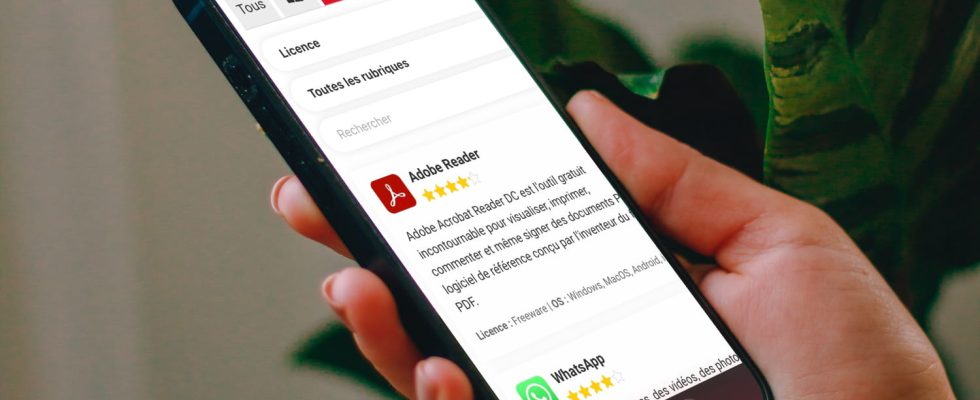Thanks to DMA, it will soon be possible to install apps on iPhone from a store other than the Apple App Store. And even directly from websites! A small revolution, under conditions all the same.
Apple had not yet told us everything about its way of responding to new European obligations, particularly linked to Digital Markets Act, which came into force on March 6. As a reminder, the DMA aims to better regulate the largest digital multinationals in order to prevent them from abusing their dominant position through anti-competitive practices. Among the companies targeted are Alphabet (Google), Amazon, Bytedance (TikTok), Meta (Facebook), Microsoft and of course Apple (read our article).
To comply with this new regulation, the Cupertino form was forced to relax its application distribution practices for the iPhone, which is for the moment the only device from the manufacturer to be affected by the DMA. Since iOS 17.4 (read our article), it is technically possible to install an application on your iPhone through an online store other than the Apple App Store, which was the one-stop shop until then. Officially called alternative marketplaces, these new App Stores for our iPhones do not yet exist, but some should see the light of day within a few weeks. We know, for example, that the application catalog Setappavailable on Mac, is preparing its arrival in beta version for mid-April, just like the alternative store AltStore.
iPhone apps: direct installation from the web
But it will not stop there because in a press release of March 12, 2024, Apple indicates that it will also soon be possible to install an application on your iPhone directly from its developer’s site, without going through any App Store! Like on a Mac or a PC, therefore. Clearly, the new European regulations are causing one revolution to follow…
As one might expect, however, to have the right to distribute its application(s) from its own website, the developer will have to submit to a significant number of obligations:
- Be a member of the Apple Developer Program, having been domiciled in the EU for at least 2 years
- Have an app that has been installed at least a million times on iOS in the previous year
- Agree, among other things, to only offer applications through this Apple developer account, to respond promptly to any request from Apple, to adopt and make public a transparent policy for processing user data, and to follow the laws of the country concerned.
- Applications distributed through this means will also be subject to the Core Technology Feethat is to say this fee of 50 euro cents for each first annual installation of the application, beyond one million installations.
Some of the obligations listed by Apple are sufficiently vague to leave room for a certain flexibility of interpretation in the event of a conflict, in particular when “ Apple will request information from the developer about fraudulent, malicious, or illegal behavior, or any other behavior that might suggest to Apple that it could impact user security or privacy. “. And we can bet that this flexibility of interpretation will rather be to Apple’s advantage. That said, we can still be pleased that Apple, even under duress, is relaxing its application distribution rules on iPhone to bring them closer to those of the Mac, while trying to protect the users that we are as best as possible.
